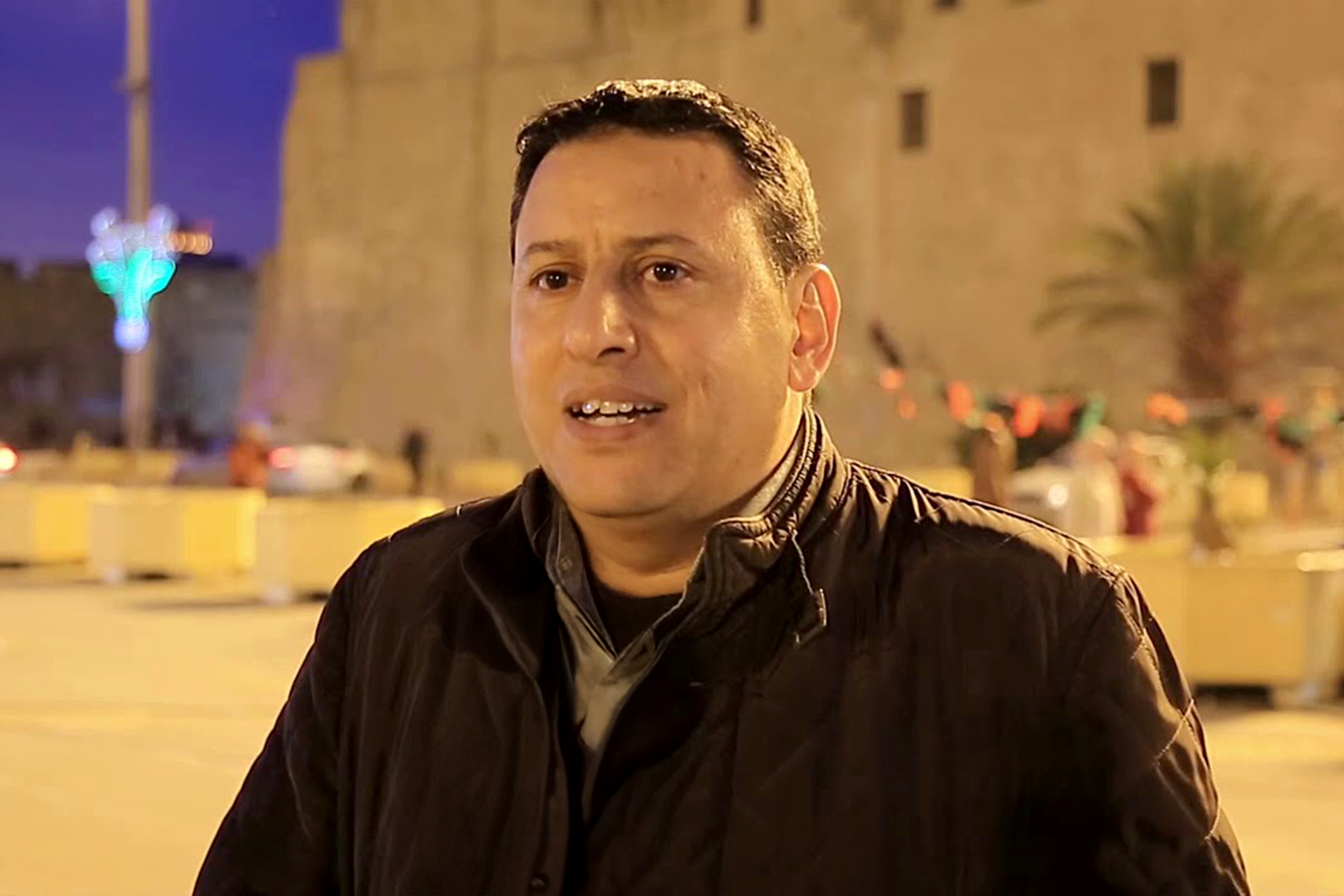The arrest of Fathi Terbel was one of the prominent events that sparked the Libyan revolution (social networking sites)
A lawyer, human rights activist, and former Libyan minister, he was born in 1972. His arrest on February 15, 2011 is considered one of the most prominent events that ignited the February 17 revolution against the regime of Libyan leader Muammar Gaddafi. The American Times magazine chose him among the 100 most influential people in the world in 2011, and in the same year he won the international “Ludwik Trieu” award for human rights.
Origin and formation
Fathi Othman Muhammad Turbel was born in 1972 in the city of Benghazi, eastern Libya, to a simple family. His father sold ice cream.
He received his primary and secondary education in Benghazi, then joined the Faculty of Law at Garyounis University (currently the University of Benghazi), from which he graduated in 2006.
His brother Ismail's joining the Libyan Islamic Fighting Group while studying aeronautical engineering in the 1980s was a turning point in his life and the life of the family. Since then, summonses and arrests by the security services have become a frequent sight for them.
In 1989, his brother Ismail, as well as his older brother Faraj (an officer in the External Security Service), were arrested on charges of failing to provide information regarding Ismail’s activities.
Experiences of detention and torture
Fathi Turbel was arrested 5 times, none of which he was charged with and was not brought to trial.
The first was in 1991, just before the celebrations commemorating the September 1 Revolution, which the regime used to hold every year. It was the regime’s habit to gather suspects who might threaten security on such occasions, and he remained in prison for two months.
Fathi Terbel lived through his second detention experience in 1995, but his imprisonment in Ain Zara in 1998 was the harshest experience he witnessed in the prisons of the Gaddafi regime.
He was subjected to physical and psychological torture, before being transferred to Abu Salim Central Prison in the capital, Tripoli, where one of the prison guards would pass on to him the first confirmed information about what happened in the massacre that this prison witnessed, and which until that time had been circulating in the context of rumors.
Abu Salim prison massacre
After about 7 years that Fathi Turbel's brothers spent in detention, the famous mass murder incident of the "Abu Salim massacre" occurred, which was committed by Libyan security forces on June 29, 1996 against prisoners inside the aforementioned prison.
The prisoners had protested against their poor conditions and declared a rebellion inside the prison to force the regime to improve conditions after the spread of tuberculosis and the humanitarian conditions inside the prison reaching a dangerous stage.
The security forces responded to this protest with a massacre in which 1,200 prisoners were killed, most of them from the Islamist movement. In the massacre, Turbil’s family lost Fathi’s brother Ismail, his cousin Khaled Abu Rawi, and his sister’s husband, Jamal Muftah al-Ruba’.
His older brother, Faraj, survived her.
Fathi Terbel participated in establishing the Association of Families of Martyrs of Abu Salim Prison, and since 2009 he has devoted himself full-time to working there as a lawyer for the families of the victims and an official spokesman for the association.
Spark of revolution
On February 15, 2011, Turbel was arrested against the backdrop of protests that demanded that the perpetrators involved in the massacre be exposed and held accountable, and that the fate of the victims’ bodies and their burial places be revealed.
This led, within hours, to a demonstration that began with the families of the victims of the Abu Salim massacre and began to expand. Hundreds joined it in front of the Security Directorate in Benghazi. It was the nucleus of a large demonstration that roamed the streets of the city on the evening of February 15, 2011, and forced the authorities to release him the next day.
This movement anticipated the date of the revolution called for by social media activists who set the date for February 17, 2011.
In the National Transitional Council
Terbel was elected to the National Transitional Council, the political body that the Libyan revolutionaries considered the legitimate representative of Libya, and in November 2011 he was appointed Minister of Youth and Sports in the Libyan transitional government headed by Dr. Abdul Rahim Al-Keib, which was the first government formed in Libya after the fall of the Gaddafi regime.
Triple left Benghazi shortly after the launch of Operation Dignity, which was led by retired Major General Khalifa Haftar against Islamists in Benghazi in May 2014.
In 2021, Terbel was appointed Chairman of the Benghazi Displaced Persons Committee by decision of the Prime Minister of the National Unity Government, Abdul Hamid Al-Dabaiba.
Source: Al Jazeera + websites

